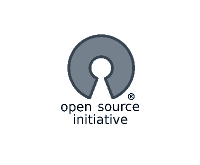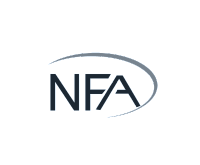
Nothing can ever fully prepare you for becoming a parent — having children is a life-changing experience, and that has certainly been the case for me with my two young sons. But the longer I’ve been a father, I’ve started to notice more similarities between my home life and my work life as a project manager at Connamara. I’ve ended up using many of the skills I’ve gained in project management to inform my parenting, and vice versa. The two are not entirely the same (I don’t want to imply that our clients are basically toddlers!) but there are more parallels between parenting and project management than you might expect.
Here are the key overlapping skill sets that I’ve found through my experiences:
Managing time: Time management is an important skill in all aspects of life, and it’s particularly important in parenting, when you’re managing not only your own time but the time of other humans as well. Similarly, in project management, you have to be considerate of both your own time, our engagement engineers’ and the clients’ time. That means being aware of deadlines, planning out schedules in advance, and working efficiently — whether you’re trying to deliver a feature to a client on time or get a child from one activity to another.
Prioritizing situations: This one is more specific to those of us with more than one child. Inevitably, you will find yourself in situations where one kid wants your attention for one thing, and the other wants your attention for something else. As much as you want to be in two places at once, you can’t. So how do you prioritize?
For me, it’s a balance. You have to assess the urgency of a situation, and how upset each child is. On the other hand, you have to ensure both kids are getting equal attention in the long run. It’s the same with clients who both want a project done as soon as possible — I weigh out the urgency and the state of each project, and balance that with making sure all of our clients are getting the attention they deserve.
Setting expectations: On a similar note, a key part of keeping both clients and kids happy is setting expectations. A timely example of this for parenting is with regards to Christmas gifts — my four year old will go through the Target magazine and circle every toy he wants. It’s my job to make sure he knows what type and amount of gifts he will receive, to ensure he’s not disappointed when he doesn’t find 200 gifts under the tree on Christmas morning.
In project management terms this is “scope creep.” Clients may ask for requirements that are outside of the scope of a project, and you can’t blame them for wanting every possible feature. You do, however, have to provide them with realistic expectations, otherwise it becomes nearly impossible to collaborate without a shared vision of a project’s endpoint.
Establishing expertise: How do you get a child or client to accept the expectations you set? It helps if they understand you are coming from a place of experience and expertise. With children, this can certainly change with age — they can go from inherently trusting everything you say to constantly thinking you’re wrong. Clients can vary as well, but it’s vital that they respect your decision-making and trust you to do what’s best for the project.
Compiling research: If you are not an expert on something, you need to try to attain at least some level of knowledge. This is where research comes in handy — whether it’s looking online and reading books about the best way to potty train your child, or getting as much information from a client as possible in order to come up with business requirements, projects become much easier when you’ve done the leg-work to prepare for them.
Communicating clearly: It’s one thing to be an expert on something, but you have to be able to communicate that expert advice clearly — especially to an audience that might not understand all of the complexities of a situation. I think about this when I am watching sports with my sons and trying to explain the rules of basketball, for example. I need to explain it in a way where they can easily understand the basics without overwhelming them with minutiae (they probably don’t need to know the intricacies of NBA roster construction yet.) It’s a similar approach to explaining a feature to a client.
Of course, the importance of communication can be extended in this analogy as well. In parenting, you need good communication with your spouse as well; in project management, you’ll not only need to communicate with clients, but with developers and the management office as well.
Knowing your audiences: In a similar vein, being a parent occasionally means taking care of someone else’s kids, such as when your kids have friends over. This often reminds me of when we have to collaborate with outside vendors who are brought in by clients. You don’t have the same relationship with these vendors as you do with your clients, so you have to treat them a bit differently — just like you cannot discipline your child’s friend the same way you do your own child. You have to find that line of being more lenient but still demanding respect.
Being patient: “Patience is a virtue.” That saying applies to life in general, but it is impossible to be a good parent without a healthy amount of patience. Having two kids has made me a lot more patient in life, and I’ve noticed that patience coming in handy in my work life as well — for example, with developers, if a feature is taking longer than expected, I have more patience now. That patience allows me to think clearly and be a better leader, ultimately leading to a better end product.
If you can follow all of the above suggestions, you’ll find life much easier, whether you’re managing projects or children. Any questions about parenting, project management, or the overlap between the two? Send me a message at [email protected].











